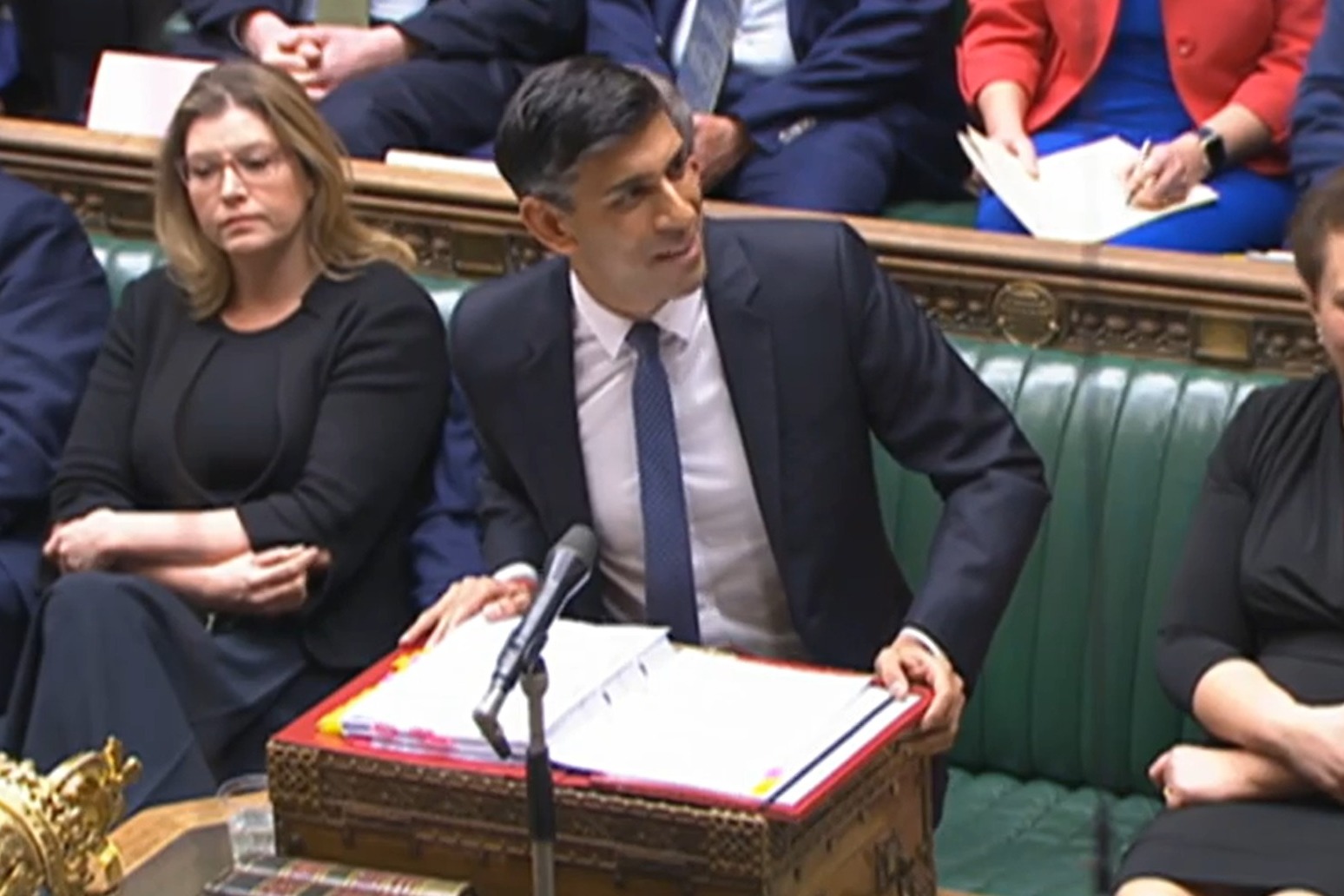
Sunak promises ‘tough laws’ to deal with ‘unreasonable’ union leaders
Rishi Sunak has vowed to take “tough” action to deal with “unreasonable” union leaders, as the Health Secretary was meeting unions over “emergency coverage” amid ambulance strikes.
The Prime Minister insisted the Government has been “reasonable” in dealing with public sector pay demands.
Sir Keir Starmer urged Mr Sunak at Prime Minister’s Questions to do more to resolve a growing wave of industrial action.
The Labour leader said: “He should stop grandstanding, stop sitting on his hands, get around the table and resolve these issues”.
The Prime Minister responded: “Hard-working families right now in this country are facing challenges.
“The Government has been reasonable. It’s accepted the recommendations of an independent pay review body, giving pay rises in many cases higher than the private sector.
“But if the union leaders continue to be unreasonable, then it is my duty to take action to protect the lives and livelihoods of the British public.
“That’s why, Mr Speaker, since I became Prime Minister I have been working for new tough laws to protect people from this disruption.”
He demanded that the opposition leader “stand up for working people” and back the laws.
The new legislation Mr Sunak appeared to be referring to, the Minimum Service Levels Bill, was first promised in 2019 and is currently stalled in Parliament.
The Prime Minister is under pressure from Tory MPs to speed up the introduction of the laws, which would ensure that, even during the most disruptive strikes, a certain number of services would still run.
Meanwhile, Health Secretary Steve Barclay said there is “still a question” over whether ambulance services will cover all emergency callouts during strikes.
Unions have said they will respond to life-threatening incidents – known as a category one calls – when they strike on December 21 in a row over pay.
The GMB, Unison and Unite are coordinating industrial action across England and Wales after accusing the Government of ignoring pleas for a decent wage rise.
Mr Barclay said officials plan to meet on Thursday to discuss coverage of category two callouts – which cover heart attacks, strokes, epilepsy and burns.
But he said “the indication from the trade unions” is that conditions like heart attacks will be covered.
He told Times Radio: “We’ve got further talks with the officials tomorrow on what are called the derogations – which bits of the service that they will offer.
“They’ve said that they will continue to offer life-threatening service, so that’s the cat ones.
“There’s a question in terms of whether they will cover all the cat twos – those are the emergency responses to things like heart attacks and stroke – so it is hugely important that those are also covered.”
He said the category three and four calls are “still very important”, adding: “Clearly, if those are not covered because of the strikes, that places huge pressure.
“Of course, we can look at what contingency plans we can put in place, but they’re never going to cover the same amount as having 3,000 ambulances on the day, which is roughly what we have on a typical day.
“There is a risk if we can’t get ambulances to people.”
He told Sky News that falls tend to come under a category three emergency and “at the moment the trade unions are saying those things wouldn’t be covered” but “the indication from the trade unions” is that conditions such as heart attacks will be covered.
Mr Barclay said he is “open to talks with the trade unions” and later added “it’s not just about pay, there’s many issues that affect staff, the quality of the NHS, tech, of staff and staffing levels”.
He said if everyone in the public sector was given a pay rise in line with inflation it would cost £28 billion.
Meanwhile Mr Barclay told GB News the “Prime Minister has stood his ground” in the dispute.
The strike will happen a day after members of the Royal College of Nursing stage their second walkout, also over pay.
The GMB said more than 10,000 ambulance workers across nine trusts in England and Wales will strike.
Members of the union will strike at South West Ambulance Service, South East Coast Ambulance Service, North West Ambulance Service, South Central Ambulance Service, North East Ambulance Service, East Midlands Ambulance Service, West Midlands Ambulance Service, Welsh Ambulance Service, and Yorkshire Ambulance Service.
GMB representatives are set to meet individual trusts to discuss requirements for life-and-limb cover.
Paramedics, emergency care assistants, call handlers and other staff will also walk out on December 28.
Unite general secretary Sharon Graham said: “The fundamental cause of the crisis in the NHS is massive understaffing, because workers are leaving the NHS in droves due to low pay and impossible workloads.
“Steve Barclay just doesn’t seem to get it. The first stage strategy to tackle the crisis involves creating a decent pay structure by making a decent pay offer. Otherwise the staff exodus continues and the crisis deepens.
“On average every health worker’s real pay is worth some 20% less than it was in 2010. A porter’s pay is down 21% in real value and a nurse’s pay down 26%.”
Published: by Radio NewsHub